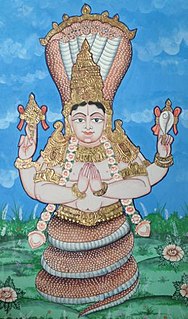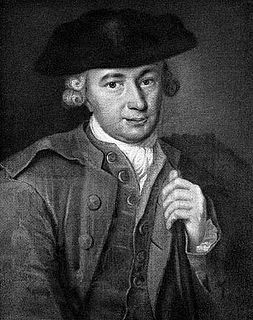A Quote by Ramana Maharshi
Pleasure and pain are only aspects of the mind. Our essential nature is happiness
Related Quotes
The existence of pleasure is the first mystery. The existence of pain has prompted far more philosophical speculation. Pleasure and pain need to be considered together; they are inseparable. Yet the space filled by each is perhaps different. Pleasure, defined as a sense of gratification, is essential for nature
Why do men learn through pain and suffering, and not through pleasure and happiness? Very simply, because pleasure and happiness accustom one to satisfaction with the things given in this world, whereas pain and suffering drive one to seek a more profound happiness beyond the limitations of this world.
Pleasure is not the goal of man, but knowledge. Pleasure and happiness comes to an end. It is a mistake to suppose that pleasure is the goal. The cause of all the miseries we have in the world is that men foolishly think pleasure to be the ideal to strive for. After a time man finds that it is not happiness, but knowledge, towards which he is going, and that both pleasure and pain are great teachers.
Meditation is not the pursuit of pleasure and the search for happiness. Meditation, on the contrary, is a state of mind in which there is no concept or formula, and therefore total freedom. It is only to such a mind that this bliss comes unsought and uninvited. Once it is there, though you may live in the world with all its noise, pleasure and brutality, they will not touch that mind.
You can never get to a person's mind. You cannot know the different deeds and missions of happiness; you can't tell a screm of pleasure from one of pain. Sometimes, we can barely read pain. Neither a barometer nor a guide, pain can mislead us. Even in the body, the laws of chain reactions can be false. This is why people always want a second opinion.
Pleasure cannot be shared; like Pain, it can only be experienced or inflicted, and when we give Pleasure to our Lovers or bestow Charity upon the Needy, we do so, not to gratify the object of our Benevolence, but only ourselves. For the Truth is that we are kind for the same reason as we are cruel, in order that we may enhance the sense of our own Power.
Experience shows that Being is the essential, basic nature of the mind; but, since It commonly remains in tune with the senses projecting outwards toward the manifested realms of creation, the mind misses or fails to appreciate its own essential nature, just as the eyes are unable to see themselves.








































